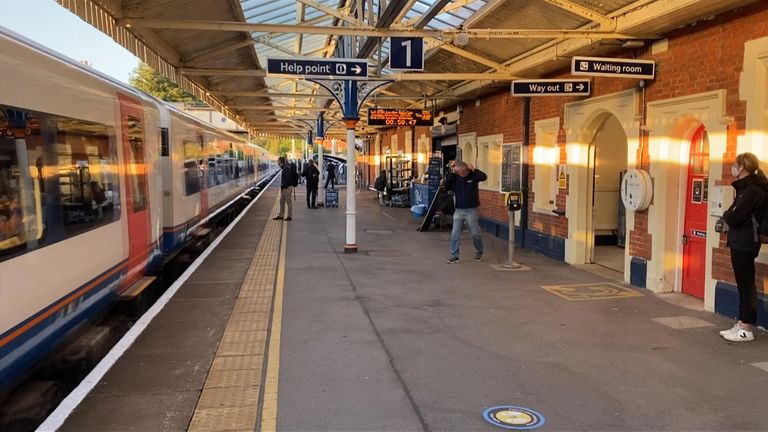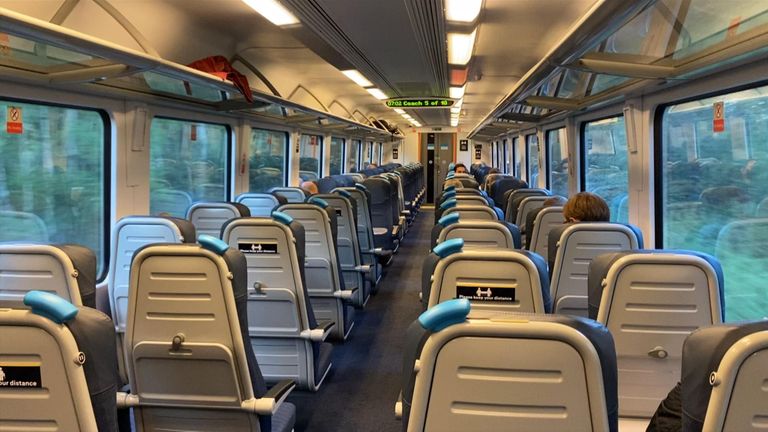The Department for Transport (DfT) says rail franchising has been “ended” as it seeks a new model for the rail network in the wake of the coronavirus crisis.
It was confirmed on Monday morning that emergency measures, introduced to keep trains running after the outbreak of COVID-19, had been partially extended for up to 18 months pending the introduction of a “simpler and more effective structure” that is being developed.
The department has taken on franchise holders’ revenue and cost risks since March, at a cost to taxpayers of at least £3.5bn.
The DfT said “significant” financial support would still be needed as operators moved to the new “transitional contracts” that will see the public purse continue to pay the companies to run services but at a slightly reduced rate.
The new so-called Emergency Recovery Management Agreements (ERMAs) ensure the companies will not be exposed to changes in passenger demand – kept low by pandemic restrictions and a reluctance to return to offices.
Transport Secretary Grant Shapps promised the looming reforms would eradicate the complex nature of the franchise set-up.
“The model of privatisation adopted 25 years ago has seen significant rises in passenger numbers, but this pandemic has proven that it is no longer working.
“Our new deal for rail demands more for passengers. It will simplify people’s journeys, ending the uncertainty and confusion about whether you are using the right ticket or the right train company.
“It will keep the best elements of the private sector, including competition and investment, that have helped to drive growth – but deliver strategic direction, leadership and accountability.
“Passengers will have reliable, safe services on a network totally built around them. It is time to get Britain back on track.”
The RMT rail union responded to the announcement by demanding the network was placed back under full public ownership.
FirstGroup, which currently runs the Avanti West Coast, Great Western, South Western and TransPennine Express franchises, was among operators to welcome the ERMAs.
Chief executive, Matthew Gregory, said: “We are pleased that the vital nature of rail services to communities and local economies is being recognised.
“Passengers can be confident that public transport is safe and across our rail networks we have increased service levels to provide more capacity as schools restart and many more workplaces and other facilities reopen.
“We are now operating around 90% of the rail services we were prior to the pandemic. We will continue to bring all our expertise to bear alongside government and industry partners to deliver the next phase of recovery of the rail network.”
Its shares – down more than 60% in the year to date – fell by almost 3% when trading opened on Monday.
Go-Ahead, the listed company behind the Govia joint venture franchises including Southern, saw its stock roll back by 5%.


